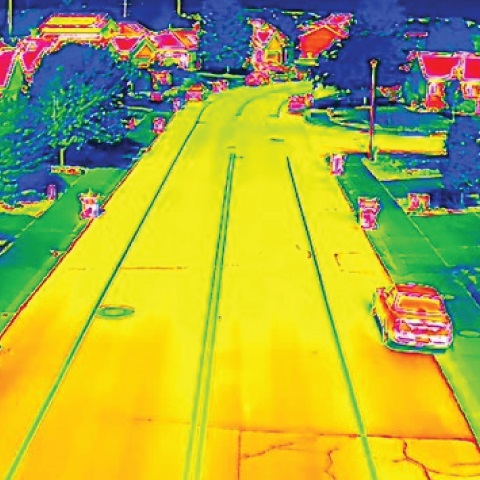Cool Places Cool Spaces Program

Have your Say | Urban Heat Survey 2024 - 2025
It is important that our community plans ahead and prepares for extreme heat, so we can all stay safe.
As such, the City of Ryde invites you to complete the Urban Heat Survey 2024 - 2025, so we can better understand how prepared our community is to manage very hot days and heatwaves, and how we can best support our community.
Find out More
The Cool Places Cool Spaces program will use an integrated approach combining data, education and engagement with both Council and community to implement heat mitigation and adaptation measures to avoid human health and environmental impacts related to climate change and urban heat.
The program will contribute to the Ryde Resilience Plan 2030 targets of cooling urban heat island affected precincts and increasing canopy cover.
Targets
By 2030, urban heat island affected precincts will be cooled by an average of two degrees Celsius (compared to 2019 ambient heat levels).
By 2030, at least 40 per cent of the City of Ryde will have tree canopy cover to provide shade, cool the air and help protect the community from extreme heat.
To meet these targets a number of initiatives have been implemented including monitoring and measuring local urban climate and weather-related conditions, patterns and changes.
To help make this happen, the Cool Places Cool Spaces citizen science project was developed.
Cool Places Cool Spaces Citizen Science Project
City of Ryde is collaborating with the Field of Mars Environmental Education Centre to create a pilot Cool Places Cool Spaces citizen science project based in Meadowbank for Year 11 and 12 geography students in Term 2, 2024. The long-term aim is to implement the project in hot spot areas across the local government area.
The project will use methodologies and equipment designed by RMIT University Sustainable Building Innovation laboratory and UNSW Sydney Faculty of Built Environment High Performance Architecture to measure microclimate data including land surface temperature, air temperature, humidity, wind speed and direction and light intensity.
The data collected during fieldwork activities will support City of Ryde to plan urban heat mitigation initiatives and community education around the impacts of heat, particularly for vulnerable members of the community.
This collaboration is a great opportunity for students to gain real-world experience in the collection of data and investigation into strategies to mitigate urban heat island effects and increase community resilience.
For more information visit Field of Mars Environmental Education Centre.